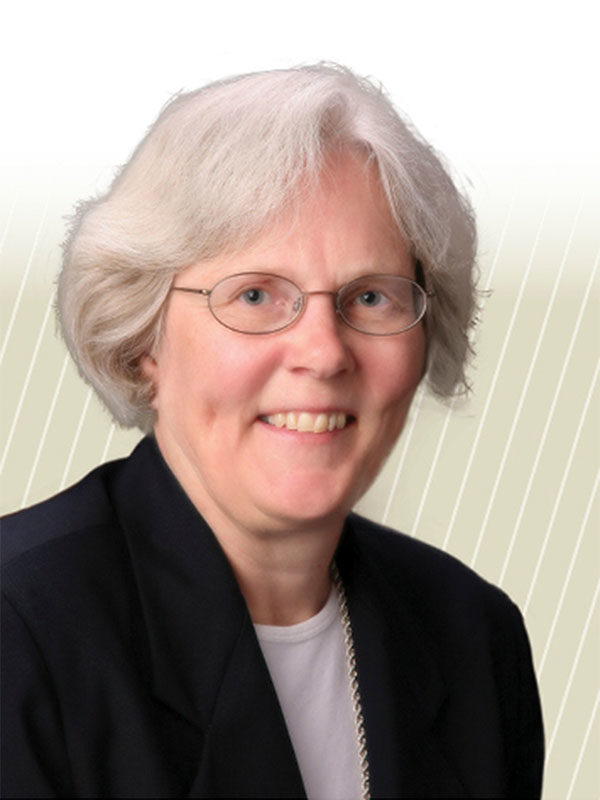Last year, Ingrid Stafford’s family hit a home run with a sure-to-be-remembered gift: a week at the Detroit Tigers Fantasy Camp in Lakeland, Fla.
“I am a total baseball fan, and I have had a passion for the Detroit Tigers since I grew up in Michigan,” says the vice president of finance operations and treasurer of Northwestern University, Evanston, Ill. “I was one of eight women at the camp. I played baseball for a week, and it was a ton of fun.”
Not one to be unprepared, Stafford incorporated physical training and baseball lessons into her routine for several months before her adventure. “I worked with a friend and colleague who is a freshmen baseball coach at a high school in Evanston. That’s because, fundamentally, you just don’t want to embarrass yourself.”
The highlights of her week were meeting members of the 1984 World Series Tigers and getting a hit her first time at bat. “My batting average was .150,” she recalls. “I had four hits, three bases on balls, and about 25 at bats. We played 10 seven-inning games in six days. I played first base. I quickly realized that first base was a strategic move, for my age, experience, and desire not to hurt myself.”
Stafford and her husband Bill have two adult sons who—no surprise—both played college baseball. Sitting in the stands watching her sons play, she would occasionally shout out unsolicited advice. “My one big takeaway from camp is that I can now authoritatively say, ‘Baseball is hard.’”

You’ve been with Northwestern for almost four decades. What’s the advantage of a long tenure?
You get this wonderful opportunity to be a steward for a significant part of the institution’s history. You have the privilege of watching the growth and development of a program or research initiative, which may require 10 or 20 years to build. You have the ability to be part of the institution’s continuity, and can be a resource when someone says, “Do you remember when? Do you remember why?” by providing subtext and context.
Any disadvantages?
Every institution has its own culture. By participating in just one culture, you can become parochial and insular unless you participate in professional organizations like NACUBO and the regional associations. I also have been purposeful in developing an active volunteer career that has enabled me to see a wide variety of organizations.
How has Northwestern changed during that time?
When I began my career at Northwestern, we did our analysis on handwritten spreadsheets. Since the early1980s, the explosion of personal computers and technological platforms has been a major change. The intersection of the personal computer and the Internet has given us the ability to improve our teaching, research, and administrative functions.
What about social media?
I haven’t personally gotten on the Facebook/Twitter/Instagram bandwagon, and we haven’t leveraged social media in an official capacity in the business office. LinkedIn has become very powerful for professional development, and I use that tool both personally and professionally to connect to discussion groups and people all over the country.
You now supervise nine functions: controller, research accounting, cost analysis, financial management systems, student accounts, student loans, treasury operations, risk management, and business continuity planning. Which is most likely to keep you up at night?
Risk management. As a private research university on a significant growth trajectory, we push the frontiers in many research areas, many of which are decentralized. In that function, we are charged with trying to anticipate—and determine whether we can insure for—all the risks that could occur. The range of activities, from athletics to students abroad, creates so many what-if scenarios.
What keeps me awake at night relates to continually understanding and reacting to the university’s plans. What will that objective mean to us? Are we prepared? A good example: Right now, we’re digging deeper into cybersecurity from an insurance standpoint, and we’re engaging a number of stakeholders to discuss our data assets of value and how to best protect them.
During the recent economic turmoil, how have you managed to keep your institution’s AAA rating?
Our board and administration are committed to financial discipline and stewardship. In the late 1970s and early 1980s, Northwestern encountered a period of deficit budgets. Since then, we have maintained a budgetary discipline and a keen sensitivity to the correct balance for supporting the current demands of our educational enterprise and preparing for future generations.
Over a 30-year period, by following a set of budgetary principles and a debt management and investment framework, we have developed financial strength.
Can you be more specific?
Our philosophy is nothing exotic, nothing cutting edge. It’s basic blocking and tackling. We have enough savings to help us through times when we needed to draw upon them. We’ve been prudent in managing our endowment and our physical plant. By making enough good decisions incrementally each year, we develop reserves and capacity, and balance-sheet strength.
How about sharing a few of the principles?
Our president and board leadership embrace four basic principles:
- We always balance the budget with a cushion for renewal and replacement of plant and general contingencies. Our budgets from the early 1980s have always allocated about 5 percent of the operating budget to contingency and savings.
- Our endowment spending rule is to stay within 4.5 to 5 percent, even in good years, helping provide for inflation and future needs.
- For our capital budget, we know how we will pay, operate, and maintain a project before starting it. Sometimes that’s a combination of gifts, grant funding, or operating support from a school or unit.
- We use debt judiciously.
You supervise 145 full-time equivalents. How would you describe your management style?
I have a great team, so I try to celebrate staff successes and showcase their efforts. I let people do what they do best by giving them authority and autonomy. It’s important for leaders to be physically present—and stay engaged with the challenges units are dealing with, so they can judge performance and understand the issues.
I like an open environment where people feel comfortable coming to me and sharing opportunities and challenges, so that I can provide support.
What don’t you like?
Surprises from my staff, and I take the same attitude toward my relationship with my executive vice president and president. I have a responsibility to inform them of developing issues. Universities are like small towns. You have an open door to stay aware of what’s going on.
Have you ever made a decision you consider risky?
When I was the board chair at my undergraduate college, we worked through very tough and challenging conversations about who could serve as the president. At the time, Wittenberg University, Springfield, Ohio, one of 28 colleges affiliated with the Lutheran Church of America, required the president to be Lutheran.
After the president announced his departure, we decided to modify that criterion to enable people with an understanding of the Lutheran tradition to be president. Our reasoning: We wanted to be in the position to attract the best talent.
Although this may sound like a minor decision, prior generations cared very deeply about the criteria and were afraid to lose their Lutheran identity. Although it was considered a risky decision to take on at the time, it’s now an integral part of the fabric of the institution. It required careful and collaborative consultation with many stakeholders, and it allowed me to use many of the skills that I use in my daily work life here at Northwestern.
MARGO VANOVER PORTER, Locust Grove, Va., covers higher education business issues for Business Officer.



